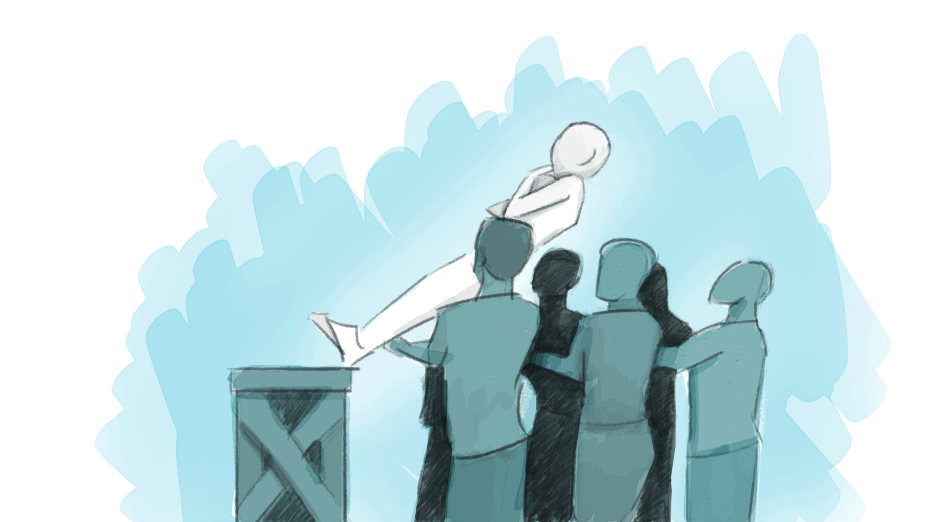A Safe Place to Fail

Image Credit: Blair Culbreth
This recent Huffington Post article about the culture differences associated with hiring Generation Y has gotten a lot of buzz within HR and recruiting circles lately. However, as a company with a lot of Gen Y employees (between 56% and 90%, depending on how one defines Gen Y) which interviews an even greater number of Gen Y job applicants, we very seldom encounter the unrealistic expectations portrayed in the article. The few instances that come to mind have occurred with the youngest folks we interact with—summer interns—and, those episodes can just as easily be attributed to youth and inexperience as the notorious unrealistic expectations HR lore attributes to Gen Y.
As a member of the Baby Boomer generation, I do sense one generational difference with those entering the workplace these days—not in terms of unrealistic expectations with respect to needing to work hard to gain experience —but, with a willingness to fail. Raised by a no-nonsense generation whose general guidance can be summed up with the expression “no complaints, no excuses,” my colleagues and I entered the workplace in the mid-1980’s with the full understanding that we would be put in situations where we: 1) didn’t know what we were doing; 2) failed miserably, both publicly and often; 3) owned our mistakes and embarrassments as badges of honor; and 4) knew that we had to rely on ourselves to improve our situations.
When I talk with the younger members of Gen Y these days, I often sense a real fear of failure. The message many in this generation seem to have internalized is “if I’m not sure I can do it perfectly, then I’d rather pass.” They loathe the idea of falling on their faces. If there’s one message I could give to those entering the workplace for the first time, it would be: it’s okay to fail. We expect it. You’re inexperienced—and the best way to gain experience is to try (and risk botching it).
At Viget, we’ve really tried to create a supportive environment in which it’s safe to try new things—and, yes, sometimes fail. Some examples:
- We host four public blogs on which staff are encouraged to post (and risk ridicule). Blog posts are not filtered through any internal approval process. Rather, each post reflects the personality, experience, and perspective of the individual.
- Our front-end developers host “code sacrifice” events where they invite their Viget colleagues, as well as outsiders, to discuss/review/rip apart code they’ve recently written. The willingness to be transparent and to openly encourage discussion that facilitates learning and improvement is just one aspect of Viget culture.
- Once a month, members of our design team share their recent work and invite critique and discussion, not just on their work -- but, on how they present their work so they can improve their client presentation skills and hone their abilities to respond to feedback.
- Our Rails developers host “hack nights” and participate in Rails Rumbles, 48-hour programming competitions, to keep their coding chops fresh.
- We encourage staff to explore new technologies, like Eli has done with Arduino, and new services, as David discussed with OpsWorks. As well, through our Pointless projects, everyone has an opportunity to try on a different hat and join a team that is working to build some awesome side project. Are you a designer dying to challenge yourself by learning to do JavaScript animations? A Rails developer with a secret passion for user experience design? Pointless projects provide an outlet to explore new skills or interests.
These examples help underscore the culture we have here at Viget -- but, they also represent low-risk opportunities in which you can hone your skills and then apply what you learn on client engagements.
We often hear Brian speak at our quarterly all-hands offsites about “progress, not perfection.” I think that perspective says a lot about how we operate at Viget and about the expectations we have of the folks who work here. Collectively (and individually), we are always in learning mode here, trying to achieve incremental improvements across the board. We create surveys to gather internal feedback and share lessons learned about everything -- from client projects to candidate evaluations to our weekly Free Lunch Friday function. We don’t expect perfection, nor are we striving for such an unattainable goal. We just always think we can do a little better.
